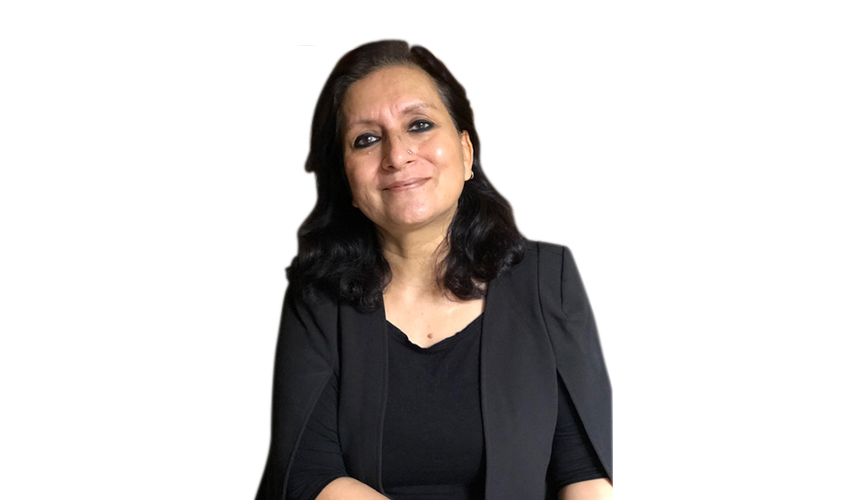We Have Created a Perfect Framework for Personalised Blended Learning: Geetika Bahuguna, Millennium Education Management
Geetika Bahuguna, COO (Services), Millennium Education Management, talks about navigating the pandemic and leveraging technology in a future of blended, personalised and formative learning
Learning in the post-pandemic era has seen a tremendous change. Educational institutions have taken innovative steps not only to enhance learning amongst their students but also to help faculty and staff to prepare and keep pace with the new teaching-learning environment.
Geetika Bahuguna, Chief Operating Officer (Services), Millennium Education Management, has 30 years of outstanding experience in education with expertise in the conceptualization, training and management of large scale innovative educational programs in both Private and Government sectors.
She is an accomplished and driven leader who has impacted more than 700 schools, 2 lakh students and 5000 educators over the years.
She speaks to us about how her institution has been able to navigate the challenges of the pandemic, leveraging technology to enhance the teaching-learning process and what the future of blended, personalised and formative learning looks like.
Edited excerpts:
How has your institution been able to navigate the challenges of the pandemic?
Millennium Schools operate with a clear focus on ensuring three critical aspects, which form the bedrock of all kinds of learning: Personalized, Experiential and Skill-Building.
During the pandemic, while most schools were exploring options, our schools were ready with a customized virtual content to run virtual classes on a hybrid model. Our teachers were trained on a virtual platform by our highly experienced team for over 100 hours before we trained our students and parents on the same.
We used both Virtual Content and MS Teams to run a hybrid model of teaching. It is heartening to share that our students not only learnt concepts, took online tests but also participated in many events and honed a variety of skills by getting vast exposure, national and international, on a virtual platform.
What are some of the ways your institution has leveraged technology in the teaching-learning process?
We are extremely proud to share that we have incorporated an extremely effective hybrid teaching-learning framework for our students by leveraging technology optimally. We took the following steps:
a) Created Virtual learning portal consisting of video lessons with entire courseware for student-driven self-paced Learning.
b) Provided Microsoft platform to run teachers driven engagements and face-to-face interaction on the virtual platform.
c) Introduced Adobe and many new apps like Flip grid, Padlet, etc to make teaching-learning more engaging and fun for students.
d) Developed Mentoring and Monitoring tools and processes for teachers and students.
How have you worked towards teacher training to enable the shift to online classes?
While our curriculum provides a robust structure, we consider our training to be its backbone.
Besides being supported with self-directed lesson plans, question banks, activity banks, Video lessons, etc, our teachers undergo a wide range of training round the year to upgrade their skills and knowledge. We have a very transparent system of monitoring and feedback system.
Last year our teachers were trained on more than 20 modules on virtual pedagogy, Microsoft Teams, Adobe, Flipgrid, subject enrichment, Math, Social Studies, English, Assessments, etc.
How can assessments today be adapted to include more formative learning models?
Technology can be leveraged exceedingly well to assess students, continuously and comprehensively. In our schools, we have created a framework to assess students holistically.
Formative – many tools like MS forms, Kahoot, Mentimeter, Flip grid, Quizlet, Padlet, etc, are being included to make formative assessments fun and engaging.
Summative – MS Forms are used successfully for centralized online assessments
Co-scholastic skills assessment – a virtual Talent festival was organized that assessed students on 6 skills – dance, music, art, theatre, etc.
In the future of blended learning, how can schools ensure personalised learning experiences for students?
Schools have to first and foremost ensure all the required resources for both online and offline learning to help students engage using a multipronged approach to accommodate his/her learning style, pace and level. Millennium Schools have created a perfect framework for personalised blended learning.
Online Learning is supported by MS Teams for students to attend online classes conducted by their teachers, can be in a group or individual for doubt clarification or remediation or visit the virtual portal to reinforce concepts with/without the teacher.
Offline Learning is supported by textbooks and other courseware, students use them when they attend a physical class or do their home assignment
Self-Paced Learning is supported by Virtual Lessons, to encourage students to revisit lessons on a virtual portal or use books and worksheets to learn on their own at their own pace.



